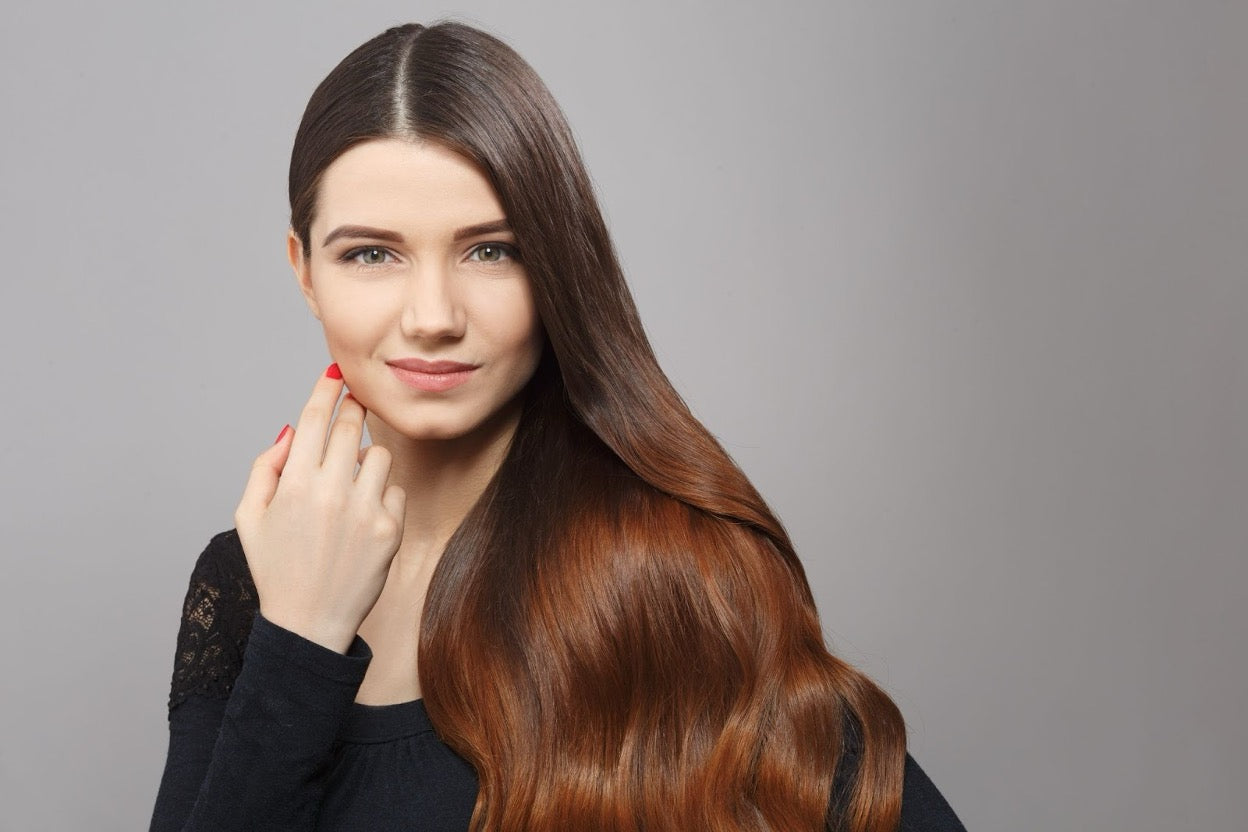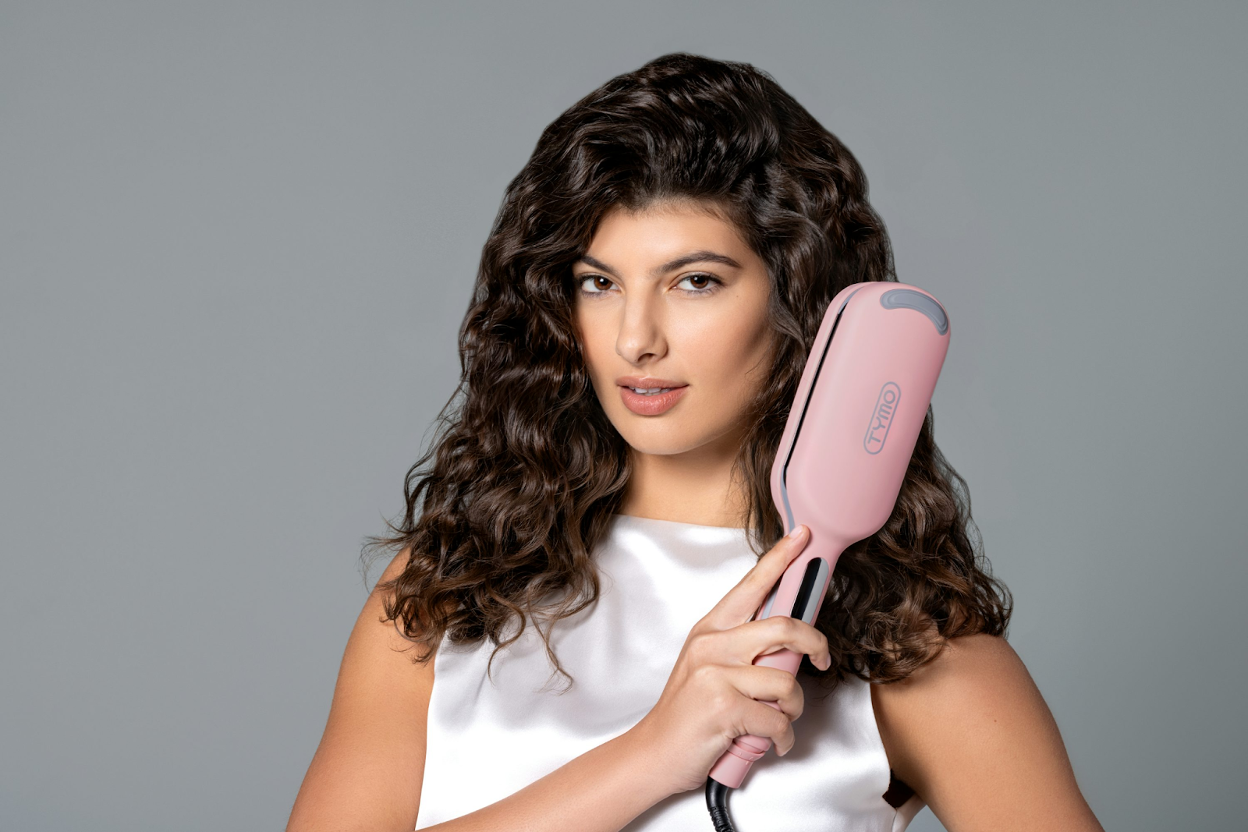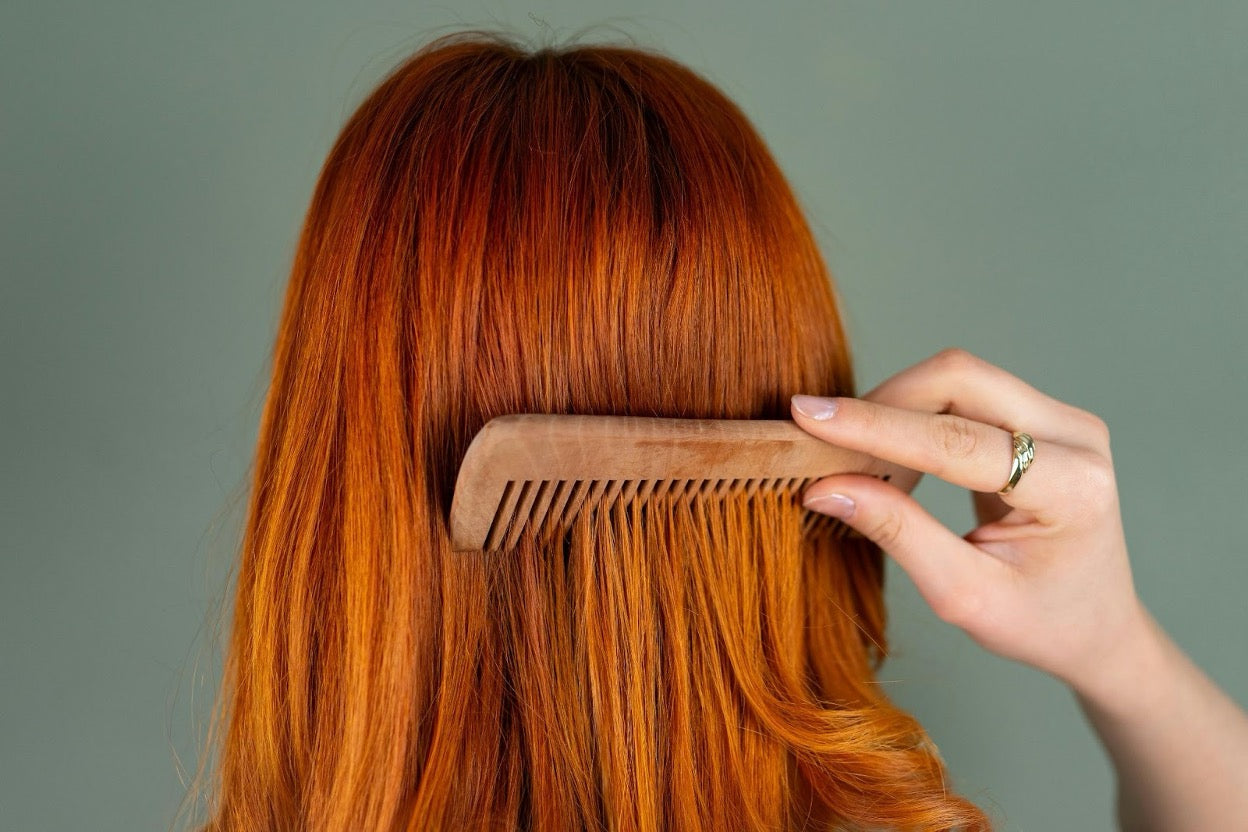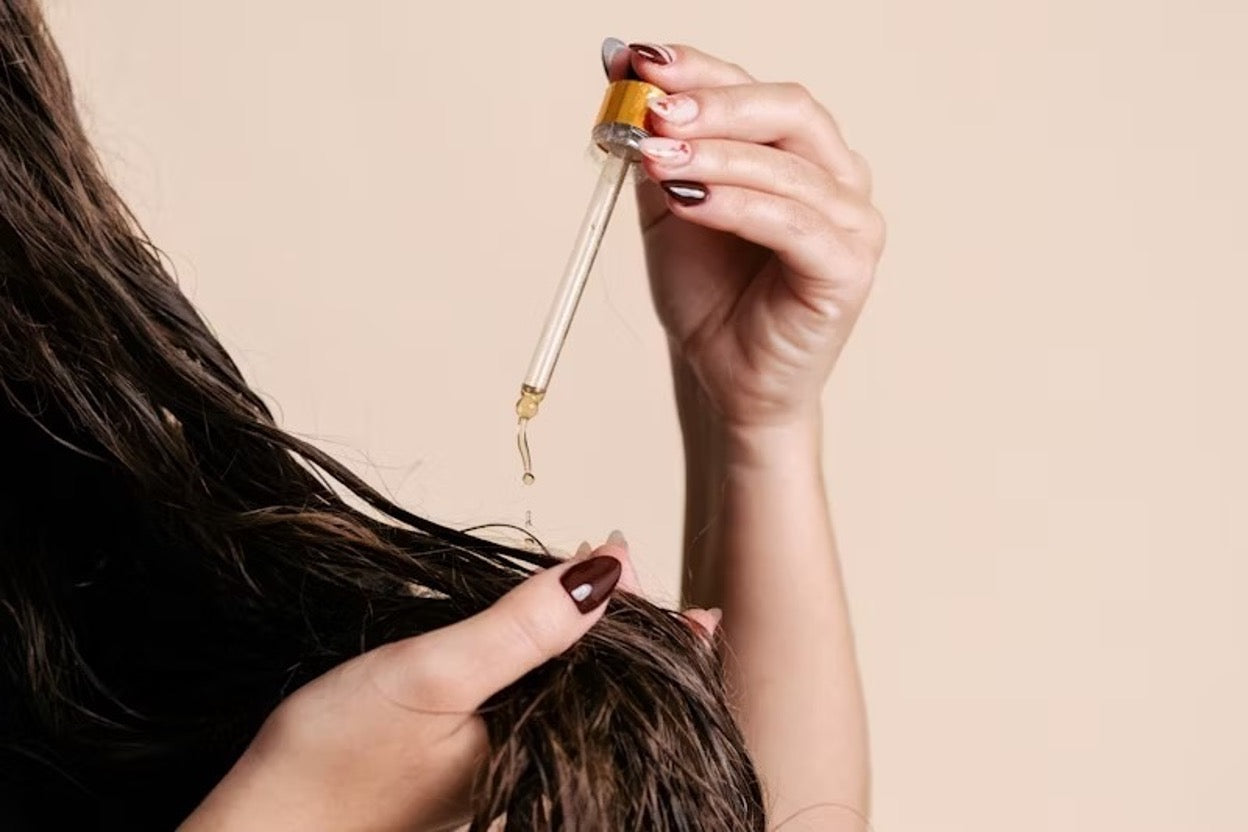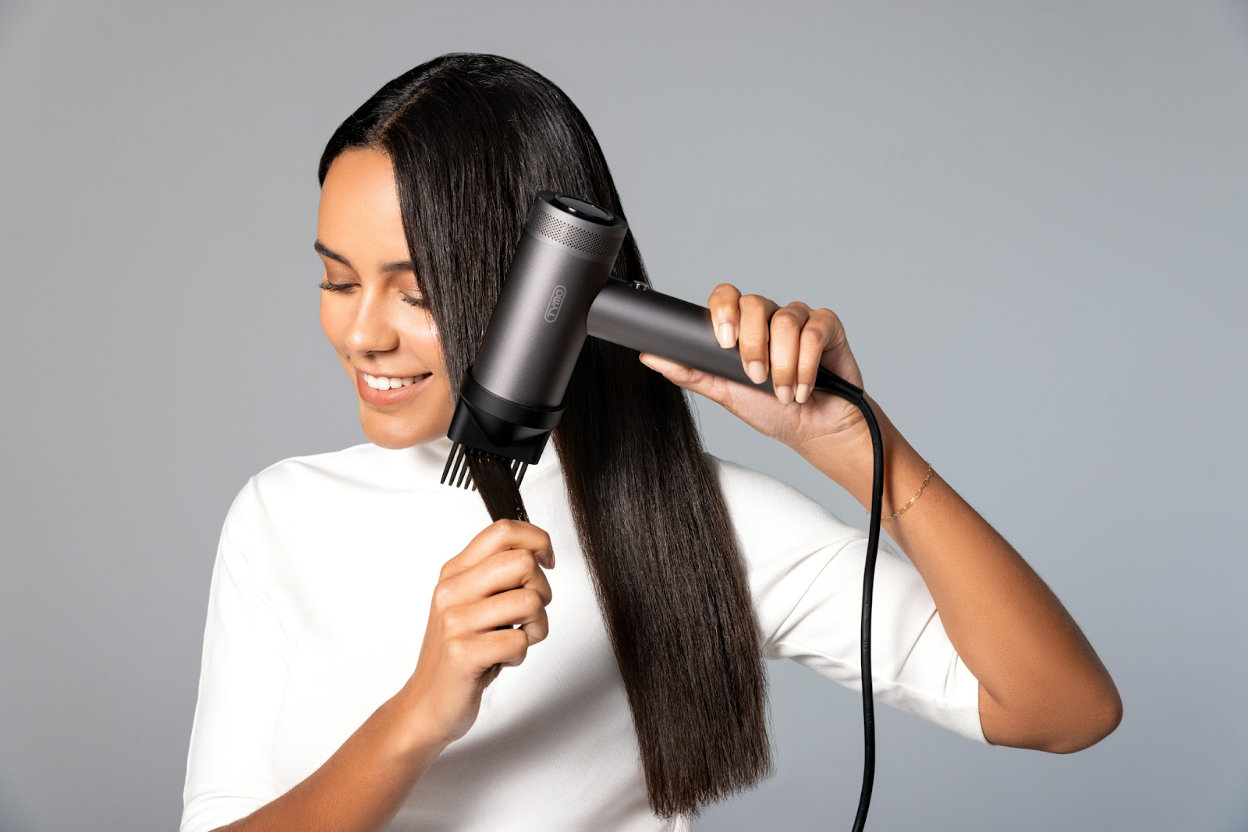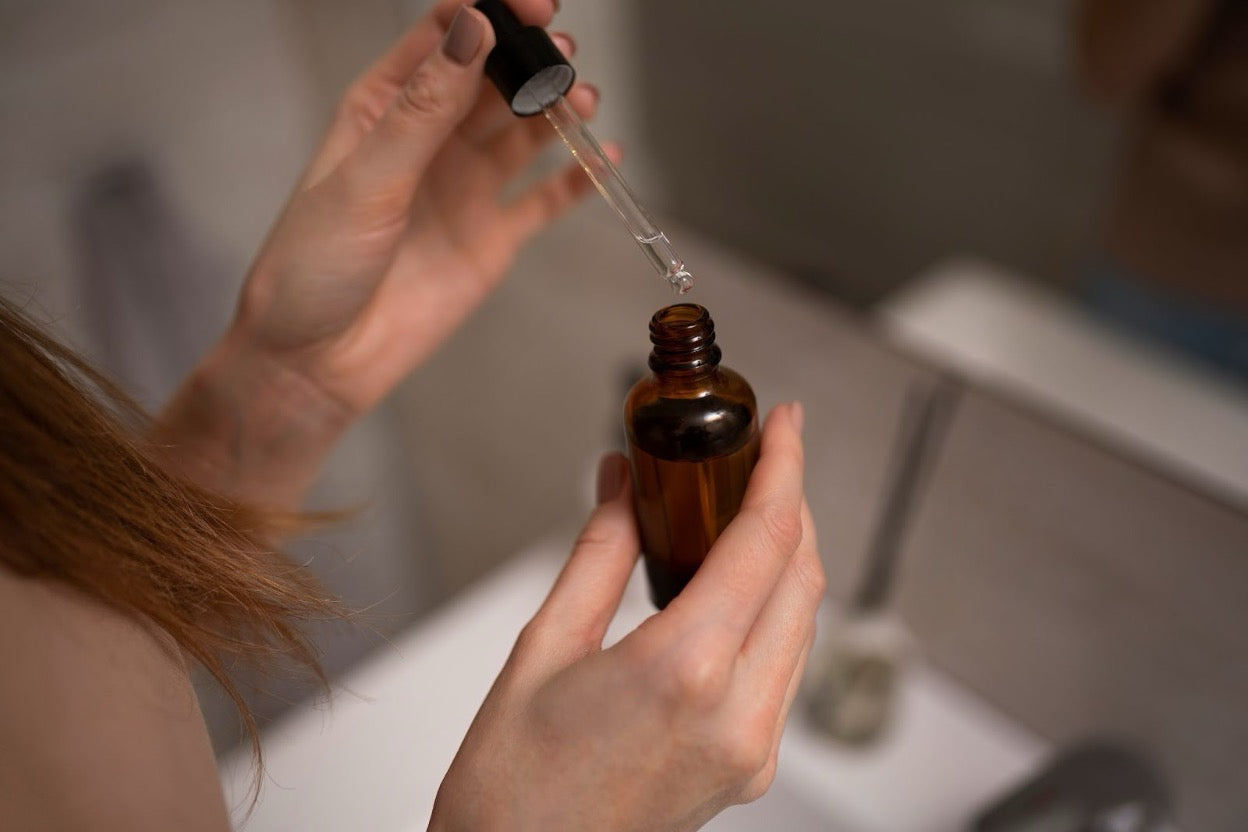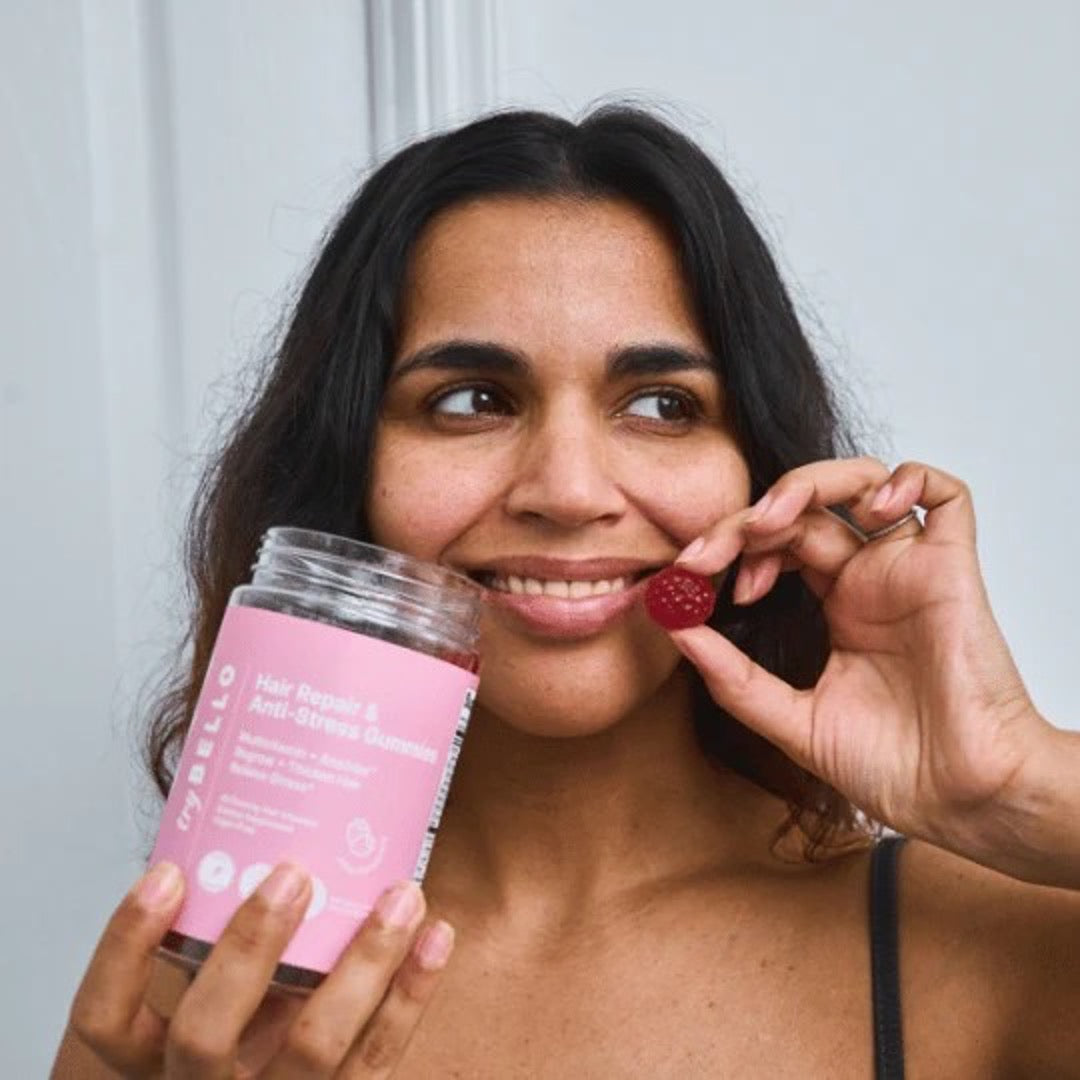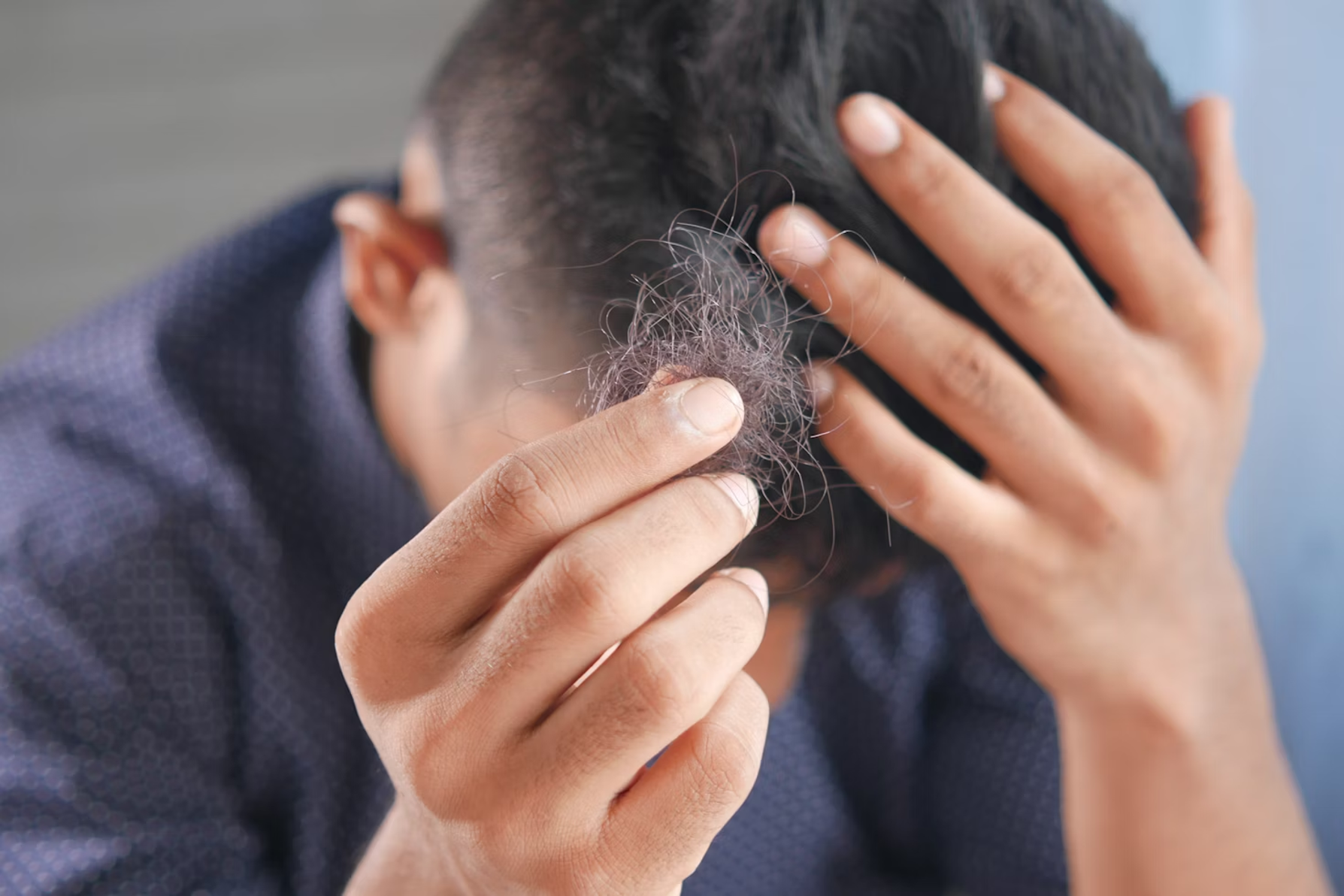Pumpkin Seed Oil vs Almond Oil for Hair Growth: Reviews, Side Effects, Pros & Cons
BY TRYBELLO
Nov 12, 2025

Key Takeaways
- Natural oils nourish the scalp and hair follicles, providing essential fatty acids, vitamins, and antioxidants that support stronger, fuller-looking hair.
- Pumpkin seed oil may help block DHT, supporting hair growth, while also delivering nutrients like zinc, iron, and vitamin E to protect and strengthen the scalp.
- Almond oil deeply moisturizes and conditions hair, reduces breakage, and enhances shine, elasticity, and overall manageability.
- Combining pumpkin seed and almond oils can address multiple hair concerns simultaneously, improving both growth and hair quality; adding essential oils can further enhance scalp circulation and health.
- For a natural, science-backed approach to thicker, fuller hair, Trybello Hair Helper Spray combines biotin, castor oil, and caffeine to nourish the scalp and support visible results, backed by a 120-day money-back guarantee.
The Truth About Natural Oils for Hair Growth
Natural oils have long been used to nourish hair and support growth, and modern research is now backing their effectiveness. Unlike harsh chemical treatments, these oils offer a gentle, nutrient-rich way to promote scalp and follicle health.
Hair growth depends on factors like genetics, hormones, nutrition, and scalp condition, and natural oils help address several of these. Rich in fatty acids, vitamins, and antioxidants, they create an ideal environment for stronger, fuller-looking hair.
However, not all oils work the same. Some, like pumpkin seed oil, target hormonal causes of thinning, while others, such as almond oil, focus on nourishment and protection. Knowing the difference helps you choose the right oil for your hair goals.
“Doctor-Approved Natural Spray Rapidly Boosts Growth & Thickness.
Why 100,000+ Women Are Switching to Trybello!"
Join over 100,000 happy customers who've transformed their hair with our doctor-formulated spray in just 12 weeks, rated 4.8/5 by 40,000+ real users.
Proven Natural Ingredients
- • Caffeine Extract – Blocks DHT and boosts blood flow to follicles
- • Biotin – Direct scalp absorption, no pills needed
- • Castor Oil – Soothes inflammation and locks in moisture
- • Rice Water Extract – Strengthens hair and reduces shedding
120-Day Growth Guarantee: No results? 100% money back, no questions asked.
How Pumpkin Seed Oil Transforms Hair Health
Pumpkin seed oil stands out in the natural hair care world for its unique composition and promising research background. This emerald-green oil extracted from roasted pumpkin seeds (Cucurbita pepo) contains an impressive profile of nutrients specifically beneficial for addressing hair thinning at its source.
Nutrient-Rich Hair Support
Pumpkin seed oil is packed with essential fatty acids, zinc, iron, antioxidants, and vitamins A and E, all crucial for maintaining healthy hair growth and scalp health.
DHT-Blocking Properties
Phytosterols in pumpkin seed oil may help inhibit 5-alpha-reductase, the enzyme that converts testosterone into DHT, a key factor in pattern hair loss. This natural action supports hair follicles in their growth phase, offering a gentler alternative to prescription options.
Scalp Nourishment and Protection
Pumpkin seed oil nourishes follicles, strengthens hair, and protects against oxidative stress, helping maintain a healthy scalp environment for optimal growth.
Clinical Evidence
Research supports both oral and topical use. A 2014 study found daily pumpkin seed oil supplementation increased hair count by 40% over 24 weeks, while topical applications in studies have shown stimulation of hair follicles within days.

Pumpkin seed oil delivers essential fatty acids directly to your scalp, supporting follicle health and growth.
Recommended Use
For topical use, 2–3 tablespoons can be massaged into the scalp for 30 minutes or left overnight for enhanced benefits.
Key Benefits:
- May help block DHT formation
- Supports growth with zinc, iron, and antioxidants
- Provides omega-3 and omega-6 fatty acids for scalp health
- Vitamin E improves microcirculation in the scalp
Pumpkin Seed Oil – Potential Side Effects
- May temporarily tint very light-colored hair green if applied topically in high amounts.
- Rare allergic reactions in people sensitive to pumpkin or squash seeds.
- It can cause mild digestive upset if taken in high oral doses.
- Requires consistent use; improper application may lead to limited results, causing frustration.
Almond Oil's Hair Restoration Benefits
Almond oil gives a different but equally impressive set of benefits for hair health. Extracted from sweet almonds (Prunus dulcis), this lightweight, golden oil has been treasured in haircare traditions across multiple cultures for generations. Unlike pumpkin seed oil's focus on addressing hormonal causes of hair loss, almond oil excels primarily as a conditioning and strengthening agent that improves the quality and appearance of existing hair while creating optimal conditions for new growth.
Deep Moisturizing and Conditioning
Almond oil, extracted from sweet almonds, is prized for its ability to deeply hydrate and strengthen hair. Rich in oleic and linoleic acids, it penetrates the hair shaft to reduce breakage, improve resilience, and enhance overall hair quality without leaving a heavy residue.
Nutrient-Rich Scalp Support
Packed with vitamin E, B vitamins (including biotin), and minerals like magnesium, zinc, and potassium, almond oil nourishes follicles and promotes scalp health. Proteins in the oil provide amino acids, helping support new hair growth from the outside in. Researchers note that vitamins and minerals play a vital role in healthy hair follicle function.
Strengthens and Protects Hair
By filling gaps in damaged cuticles, almond oil strengthens strands and reduces porosity. Its emollient properties create a protective layer around hair, locking in moisture, shielding against environmental stress, and enhancing shine, elasticity, and manageability.
Boosts Scalp Circulation
Massaging almond oil into the scalp can improve microcirculation, increasing nutrient and oxygen delivery to follicles. Clinical studies show that regular scalp massages with almond oil can reduce shedding and improve hair texture within weeks.
Recommended Use
Apply 2–3 tablespoons of almond oil to the scalp and hair 2–3 times per week. Massage gently for 5–10 minutes to enhance absorption and circulation. Leave on for at least 30 minutes or overnight for deep conditioning before washing out.

Almond oil penetrates deep into the hair shaft, reducing breakage and enhancing shine.
Key Benefits
- Deeply moisturizes and strengthens hair
- Nourishes scalp with vitamins, minerals, and amino acids
- Reduces breakage, split ends, and dryness
- Enhances shine, elasticity, and manageability
- Supports healthy circulation to promote growth
Almond Oil – Potential Side Effects
- It can trigger allergic reactions in individuals with nut allergies.
- Over-application may weigh down fine hair or leave a greasy residue.
- It may cause buildup on the scalp if not washed out properly.
- Rarely, sensitive scalps may experience irritation if massaged in too vigorously or used with essential oils without patch testing.
Direct Comparison: Which Oil Works Better?
When choosing between pumpkin seed oil and almond oil, the "better" option depends entirely on your specific hair concerns and goals. Rather than viewing these oils as competitors, it's more accurate to see them as specialized tools with different primary functions.
Purpose and Strengths
Choosing between pumpkin seed oil and almond oil depends on your hair goals. Pumpkin seed oil targets hormonal hair thinning and may stimulate new growth, while almond oil excels at conditioning, repairing damage, and improving overall hair quality. For pattern hair loss, pumpkin seed oil is ideal; for brittle or damaged hair, almond oil provides faster, visible improvements. Many experts recommend using both oils strategically for maximum benefits.
Absorption and Usage
Almond oil’s lighter molecular structure allows quick penetration into the hair shaft, making it ideal for daily leave-in treatments and fine hair types. Pumpkin seed oil is best for scalp-focused treatments, particularly when addressing DHT-related thinning.
Pumpkin Seed & Almond Oils: Advantages and Limitations
To help you decide which oil best suits your hair goals, here’s a breakdown of the key benefits and potential drawbacks of pumpkin seed and almond oils.
Pumpkin Seed Oil
- May help block DHT, supporting hair growth in pattern hair loss.
- Rich in zinc, iron, antioxidants, and vitamins A & E for scalp and follicle health.
- Supports follicle growth and protects against oxidative stress.
- Can be used orally or topically for flexible application.
- Slower visible results (typically 8–12 weeks for initial growth).
- A green tint may temporarily affect very light-colored hair if used topically in high amounts.
- Primarily targets hormonal thinning, less effective for damaged or brittle hair.
- Requires consistent use for months to see benefits.
Almond Oil
- Deeply moisturizes and strengthens hair, reducing breakage and split ends.
- Rich in vitamin E, B vitamins, minerals, and amino acids for scalp and hair health.
- Improves shine, elasticity, and manageability.
- Enhances scalp circulation when massaged in.
- Limited direct effect on hormonal hair thinning (DHT-related).
- May cause allergic reactions in individuals with nut sensitivities.
- It can be heavy for fine hair if over-applied.
- Results on growth length take time and require regular application.
Comparison of Pumpkin Seed Oil and Almond Oil for Hair Health
| Feature / Benefit | Pumpkin Seed Oil | Almond Oil |
|---|---|---|
| Primary Focus | Targets hormonal hair thinning (DHT-related) | Conditions, strengthens, and nourishes existing hair |
| Key Nutrients | Zinc, iron, antioxidants, vitamins A & E, omega-3/6 | Vitamin E, B vitamins (including biotin), minerals, and amino acids |
| Hair Growth Support | Supports follicle growth, may block DHT | Improves hair quality, reduces breakage, enhances shine, and manages hair |
| Application | Oral capsules or topical (2–3 tbsp) | Topical only (2–3 tbsp, 2–3x per week) |
| Time to Noticeable Results | 8–12 weeks preliminary, 4–6 months for visible growth | 2–4 weeks for improved texture; growth length requires consistent use |
| Pros | Flexible use, protects scalp, nutrient-rich, DHT-blocking | Deeply moisturizes, enhances circulation, and strengthens hair |
| Cons | Slower results, green tint may affect light hair, less effective for damaged hair | Limited effect on hormonal thinning, may trigger nut allergies, heavy for fine hair |
Trybello Hair Helper Spray: Your Natural Solution for Thicker, Fuller Hair

Trybello Hair Helper Spray combines natural ingredients to support hair thickness and scalp vitality.
If you're seeking a natural, effective way to enhance your hair health, the Trybello Hair Helper Spray delivers a promising solution. Formulated with a blend of biotin, castor oil, and caffeine, this spray targets the root causes of hair thinning, such as hormonal imbalances and poor scalp circulation.
Key Benefits
- Natural Ingredients: Free from hormones, silicones, and parabens, ensuring a clean and safe application.
- Visible Results: Many users report noticeable improvements in hair thickness and volume within weeks of consistent use.
- Easy Application: Designed for daily use, the spray is lightweight and non-greasy, making it suitable for all hair types.
- Satisfaction Guarantee: Trybello offers a 120-day money-back guarantee, allowing you to try the product risk-free.
Recommended Use
For optimal results, apply the Hair Helper Spray directly to the scalp, focusing on areas of thinning. Massage gently to ensure even distribution and absorption. Regularity matters, so incorporate this step into your daily hair care routine.
By choosing Trybello Hair Helper Spray, you're opting for a natural, science-backed approach to support your hair's health and vitality.
Healthy hair is a spray away with Trybello!
Frequently Asked Questions (FAQs)
Trending Topics
See our latests posts #TRYBELLO



